Tanzanian and Ugandan Presidents condemn the International Criminal Court (ICC) decision to investigate Burundi. The Heads of State say this measure hampers efforts to promote peace in Burundi.
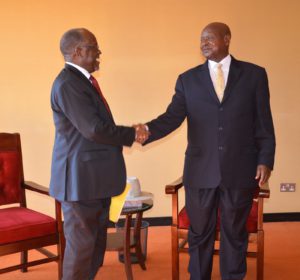
Presidents Magufuli and Museveni condemn the ICC’s investigations on Burundi.
Tanzanian President John Pombe Magufuli went to meet his Ugandan counterpart in Masaka, Uganda on Sunday 11 November. At the end of their meeting, they set about the ICC. Yoweri Kaguta Museveni condemns the ICC decision to authorize the ICC prosecutor to investigate Burundi. “ICC investigations are an obstacle to peace efforts in Burundi.”
The Ugandan president also President-in-Office of the EAC and mediator in the Burundian crisis deplores a decision taken without consulting the sub-region leaders. He says he will contact other EAC Heads of State to agree on an official communication they will send to the ICC to defer the decision to investigate in Burundi.
Tanzanian President John Pombe Magufuli says the ICC decision will undermine the EAC initiative to resolve the current Burundi crisis. He assured that the security situation in Burundi was not critical “as testified by the Burundian refugees who return home.” He also announced that the mediation had agreed to hold a dialogue session on 23 November in Burundi, except that the ICC decision may put everything in question.
Give priority to political resolution to the detriment of the fight against impunity
This is not the first time that both presidents have shown their support for Bujumbura. We remember the summit of Heads of State of the EAC that took place in May. Everyone was puzzled by the surprising declarations of the EAC chairman who had designated the European Union as the oppressor of Burundi “Burundi problem is our concern, it’s up to us to solve it. With the European Union we have a problem.
You are unilaterally taking sanctions against Burundi while it is one of our members, he said adding that “But what are these bad manners? … Please, our house is our house; do not interfere without asking our opinion. ”
In July, Tanzanian president went to the Tanzanian border to meet with the Burundian president. The Tanzanian president had clearly shown his support for his counterpart President Nkurunziza. He particularly hailed the security restored in Burundi and accused the UNHCR of preventing Burundian refugees from going back home.
The politicians note that the two Heads of State seem to favor politics and diplomacy as the ways of resolving the crisis that Burundi has been experiencing since 2015 to the detriment of the fight against impunity.
In any case, the International Criminal Court announced on 9 November, the opening of investigations in Burundi. According to Fatou Bensouda, there is every reason to believe that crimes against humanity were committed in Burundi. These crimes would involve state agents as well as youth affiliated with the ruling party. Burundi definitely withdrew from the ICC on 27 October 2017.
>>Reactions
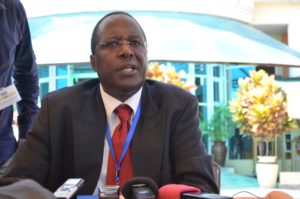 CNARED: “The dialogue has been broken for two years, well before the ICC decision.”
CNARED: “The dialogue has been broken for two years, well before the ICC decision.”
The opposition coalition in exile deplores the position of these two presidents. CNARED (platform of the opposition coalition) Chairman Charles Nditije said the dialogue has been broken for two years, well before the ICC decision.
These two presidents would rather look for the good reasons for this block on the side of their commitment in this process as well as on that of Burundi government. CNARED is also concerned about the security of its delegation in the forthcoming Arusha talks. This is motivated by the disappearance in Tanzania of four leaders of FPB rebel movement. “What guarantees us that we will not face the same problem»?
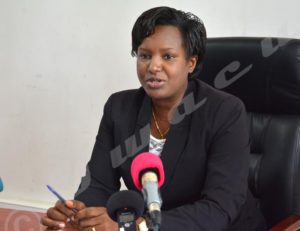 Burundi government welcomes the EAC support
Burundi government welcomes the EAC support
Aimée Laurentine Kanyana said Burundi welcomes the support of the EAC for its efforts to promote national reconciliation, peace and security, the return of refugees, as well as impartial and credible justice. For the minister, the ICC decision once again confirms the politicization and manipulation of human rights and the attempt to destabilize African countries. Burundi denounces what it describes as the manipulation by the neocolonial forces to try to effect a change of regime. It also incriminates the European Union and its hostile network in Burundi.
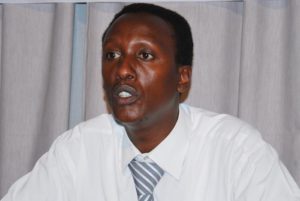 Vital Nshimirimana: “Their position discredits them.”
Vital Nshimirimana: “Their position discredits them.”
The human rights activist in exile is surprised at the position of African Heads of State who claim to fight against Western imperialism on behalf of national sovereignty by fighting a court which they have joined. “It discredits them”.
Vital Nshimirimana assures that the ongoing dialogue suffers from hesitation and lack of interest from EAC Heads of State. The opening of the ICC investigations will contribute to the advancement of the conflict resolution process because it will fight against impunity, at the root of the cyclical crises in Burundi.
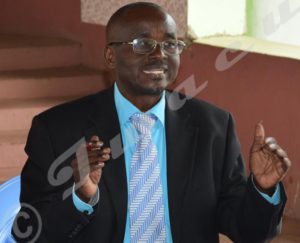 Hamza Venant Burikukiye: “Proof of solidarity and maturity”
Hamza Venant Burikukiye: “Proof of solidarity and maturity”
The spokesman for PISC Burundi, a civil society platform said that the position of these two presidents shows proof of solidarity and maturity. Without wishing to go into details, Hamza Venant Burikukiye assures that “the African Heads of State have learned and understood. He criticizes the International Criminal Court, which he says, has violated the provisions of the Rome Statute. He also regrets that the ICC ignores the efforts of the sub-region to strengthen peace and reconciliation in Burundi. “The court should not have engaged in prosecutions without consultation with people who are working on the same consequences of the 2015 crisis.”
Analysis
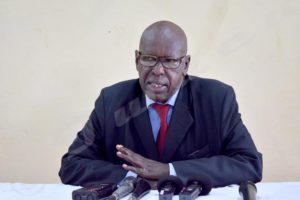 According to the former diplomat, Cyprien Mbonimpa, Uganda and Tanzania have both signed the Treaty of Rome which is at the origin of the ICC, and they have no intention to escape it. According to him, Museveni has already worked with this court and he did not consult the East African Community.
According to the former diplomat, Cyprien Mbonimpa, Uganda and Tanzania have both signed the Treaty of Rome which is at the origin of the ICC, and they have no intention to escape it. According to him, Museveni has already worked with this court and he did not consult the East African Community.
The analyst says the two presidents express a general opinion of the African Union against the ICC, except that so far only Burundi has withdrawn from the Rome Statute.
As for the inter-Burundian dialogue, the diplomat notes that there is very little progress. And it is not the ICC that has prevented the dialogue from moving forward.
In addition, the International Criminal Court is an independent court, and the analyst says he does not believe that the latter should seek the agreement of the EAC to work on it. The ICC is governed by the statutes ratified by more than a hundred states.
Cyprien Mbonimpa assures that the work of the ICC will last a long time and there is no indication that his investigations can hinder in any way the inter-Burundian dialogue.
Agnes Ndirubusa translated by the English department


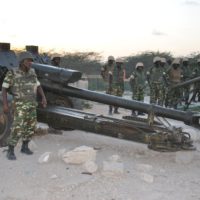
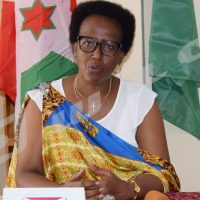
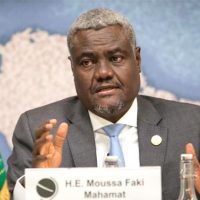













 IWACU Open Data
IWACU Open Data

